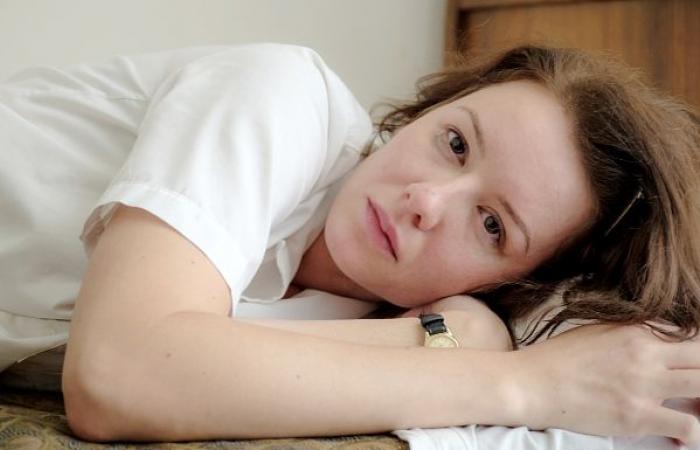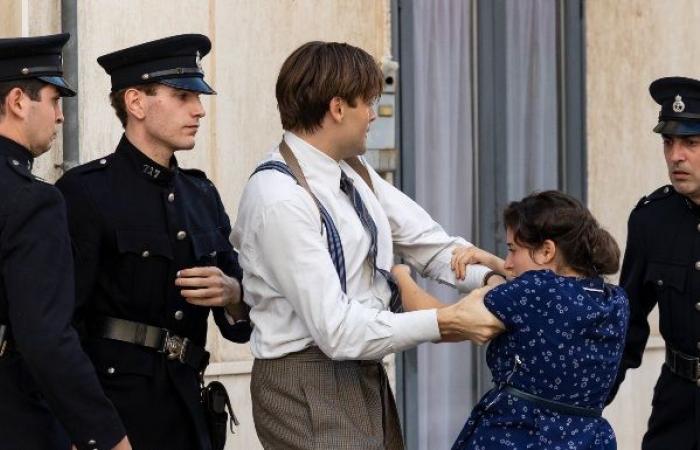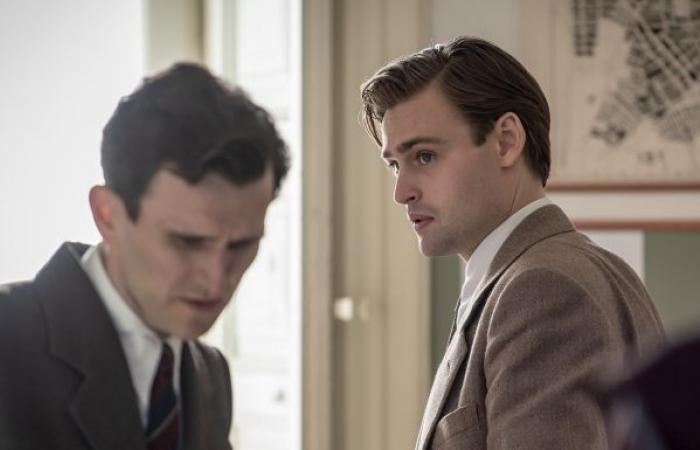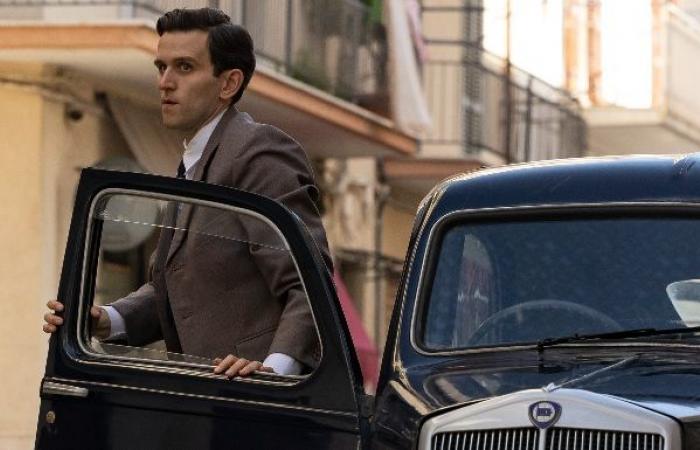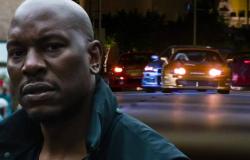Users: 126
“The Promised Land” (Shoshana), by Michael Winterbottom, explores the true story of passion and struggle during the period of the British occupation of Palestine.
These days, a film like “Shoshana” (The Promised Land), 2023, directed by Englishman Michael Winterbottom, can raise more questions than would be expected in other eras of less emotional intensity. All because of the conflicts that have shadowed the Middle East for many decades, and Palestine in particular, whose very vivid memory finds a horrible continuity in the barbarity that we witness daily from the Gaza Strip and also from the West Bank illegally occupied by Israel. It is not us who say this, but rather the resolutions in this regard coming from the United Nations.
THE ORIGINAL SIN
In fact, the action of this film takes place in the past but in a very turbulent time from a political and military point of view when Palestine was under the control of the British authorities, the Palestine British Mandate (British Mandate for Palestine), which was approved in London on July 22, 1922, confirming the occupation in practice that had lasted since the end of the First World War and since the beginning of the 1920s in Transjordan. But it will be necessary to go back a few years to better understand what was really going on and what was actually germinating in those parts that began to be invaded by a growing number of Jews, coming mainly from Central and Eastern Europe and countries where the a movement of spiritual resurgence with consequences not only philosophical but material.
We talk about Zionism, which defended, among other global guidelines, the idea of creating a Jewish State in what had been an integral part of the Ottoman Empire for many years. Given that the Turks allied themselves with Germany during the First World War, with the latter’s defeat their power in the region collapsed and a significant part of the spoils of war at the geo-strategic level was shared between France (the northern part of the aforementioned Empire , where we find today Syria and Lebanon) and Great Britain (the southern part, that is, Palestine). At this time, the Arab population continued to be the majority, and if on the part of resident Jews or immigrants, still a minority, there was a nationalist feeling that was on a collision course with that of Arab nationalist movements, the issue acquired more serious proportions when the promises made Palestinians’ ability to dream of an independent Palestinian State vanished due to the fact that the victorious allies simply ignored what, however ambiguously, they had formulated as a hypothesis of peaceful coexistence between Arabs and Jews, including the harmony of those who professed different religions. , the most representative of which are Islam, Judaism and Christianity.
It did not take long to generate a series of conflicts and revolts that pitted Arab nationalist and Zionist forces against each other, with both parties demonstrating a gradual appetite for a military response to the increasing number of provocations that were no longer just political rhetoric. , deemed innocuous given the unequal positioning of the forces subjected to the European occupier. On the Jewish side, an armed organization was founded at the time, the Haganah, initially controlled by Zionists, including some socialists. They then profiled themselves as defenders of the Jews, but advocated the project of living together with the Palestinian Arab populations.
However, another Zionist faction, let’s say, of the fascist extreme right, led by Vladimir Zabotinsky (a confessed admirer of the Italian dictator Benito Mussolini), ended up subverting the civilizational values of the former and created another organization, the Irgun Zvai Leumi, who did not hesitate to use violence against the Arabs and also against the British who sought to repress them, not always with success. Terrorism was the path they chose, and multiple attacks followed one another with a decisive impact on the destabilization of the always fragile status quo existence of the region.
It is in this context that we will meet Shoshana Borochov, daughter of a left-wing Zionist who in the 1920s traveled from her native Russia to settle in Tel Aviv. A character based on a figure who actually existed, Shoshana Borochov (played by Russian actress Irina Starshenbaum), herself a supporter of Zionist socialism, will, in her wanderings through the more or less bohemian surroundings of the Mediterranean city, meet an agent of the English secret services, Thomas Wilkin ( Douglas Booth). A fact that would be perfectly normal in a normal context, but in a generalized context of distrust and hatred constituted a clear and dangerous sentimental relationship condemned by his supporters, political opponents and family members who did not take kindly to the exposure that this gave him as a whole. of subversive activities in which he had been involved. Namely, this militancy went through guerrilla preparation actions with the Kibbutz to organize their eventual self-defense, where they used weapons whose possession was prohibited, both for Arabs and Jews.
In the many paths of the labyrinth and hornet’s nest in which the characters intersect, Michael Winterbottom seeks to articulate with as much detail as possible, in a 121-minute film, a set of sequences in which the woman and militant Shoshana stands out through the voice of the narrator, as well as the complex range of relationships between what we can call the “good cop”, that is, his lover Thomas Wilkin, and the “bad cop”, Geoffrey Morton (Harry Melling), one of those mercenaries of duty who did not look for any means to achieve his goals. purposes. From the latter’s sinister personality we can interpret the idea that his objective was not to control the most evident aspects of subversion, but rather to eliminate those he persecuted in the name of the law and orders dictated from London.
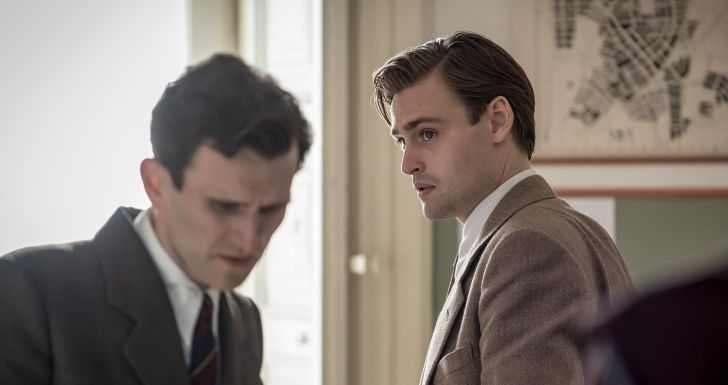
This character has the hallucinated look of an authentic henchman who, without a shred of humanity, attacked those he considered inferior, in the case of the Arabs, or enemies of the interests of those who paid him a repressor’s salary. People like these were essential to maintain racist and colonialist policies that found an echo in the ideological idiosyncrasies of many European countries, those that maintained Empires that helped to consolidate their power and influence in the world. Portugal was no exception, but compared to the United Kingdom, in certain overseas areas, our compatriots were nothing more than choirboys. In the middle of the narrative, and within its zone of greatest conflict, the argument did not retreat in the face of the difficulty of getting the message across that, even among those who fought for something more than opposing subservience to the occupier, there were glaring contradictions capable of generating even more violence than that used by police authorities.
In this way, we can say that the controversial figure of a Zionist like Avraham Stern (in his CV we find a frustrated alliance with the Nazis to fight the British), dissident of the Irgun to which he belonged from the beginning, later founder of another more radical group, the Lehi (known for gang from Stern) almost marginalizes Shoshana’s importance as the center of our attention. There is a clear shift in the action to the intense and systematic pursuit where, for obvious reasons, police officers Thomas Wilkin and Geoffrey Morton stand out. Narrative deviation with some parallel episodes that slightly unbalances the reasons that gave strength to the Shoshana/Wilkin couple’s increasingly intimate and haunted relationship. However, in the shadows and pushing the protagonist into a more or less predictable clandestinity, the script reminds us that the inevitability of future events began to be drawn in a moment of relative police success, but that ultimately this situation was subject to the setbacks of History in the post-Second World War, resulting in the abandonment of the region to another war that unfortunately still continues today and that did not end, on the contrary, with the recognition in 1947, by the United Nations, of the possibility of two separate states, the State of Israel and the State of Palestine.
WHAT IS BORN CROOKED IS LATE OR NEVER STRAIGHTENS
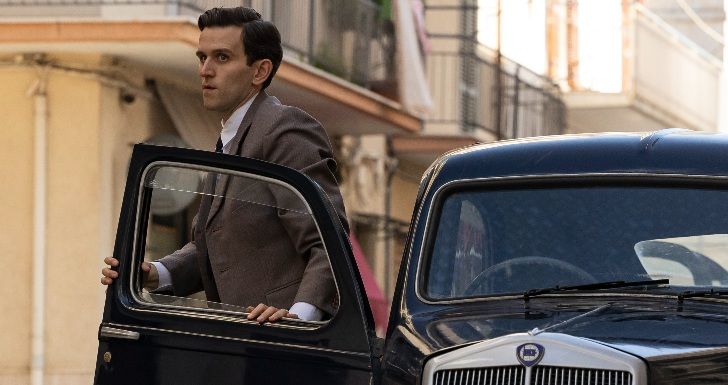
In fact, in the last images of “Shoshana” we will hear the confession that she and her companions from the Haganah they joined those who once criticized and accused them of being extremists for representing factions or even sects that did not fit into the plans originally defended by the Labor Zionists. In these last minutes we see her in a military column already as a full-fledged guerrilla. In a specific combat action, he points the machine gun at a place where the advance of another column can be seen, most likely Arabs, but the execution intentionally avoids any safe identification. Finally, Shoshana pulls the trigger and shoots straight at the lens, that is, against the spectators’ point of view or, at least, trying to counteract the relative distance of her illusory point of view.
A point of view that does not fail to include questions of a moral nature. And one question remains in the air: if you knew what we know today, against whom would the militant Shoshana rise up? Against the British? No, because it would be fighting against a shadow, since they shook the water off their coat and left in 1948. Against the Arabs, including the Israeli Arabs? I don’t think it would be a wrong option that would only put out the fire with gasoline. There is no answer from the film. But, if he maintained his ideals and those of his father, he would probably attack those who destroyed the promise of building a solution in Palestine that would integrate the two peoples, Arabs and Jews. An apparently lost project that involved mutual respect for their differences and the appreciation of what brought them together, starting with the fact that they are two Semitic peoples with roots that intersect in a historically relevant past, contrary to what many people are saying.
The Promised Land (Shoshana), the Review
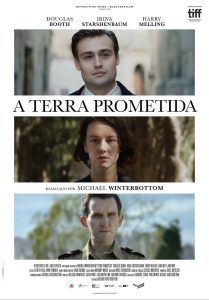
Movie title: Shoshana
Director(s): Michael Winterbottom
Actor(s): Douglas Booth, Irina Starshenbaum, Harry Melling, Aury Alby
Genre: Thriller, 2023, 119min
Conclusion:
PROS: An urgent film to better understand how certain situations persist today based on unresolved situations in the Middle East, and in particular in Palestine.
Good reconstruction of the time, Palestine in the forties of the 20th century, curiously achieved in the region of Apulia, commune of Ostuni, in Italy.
CON: Nothing.

